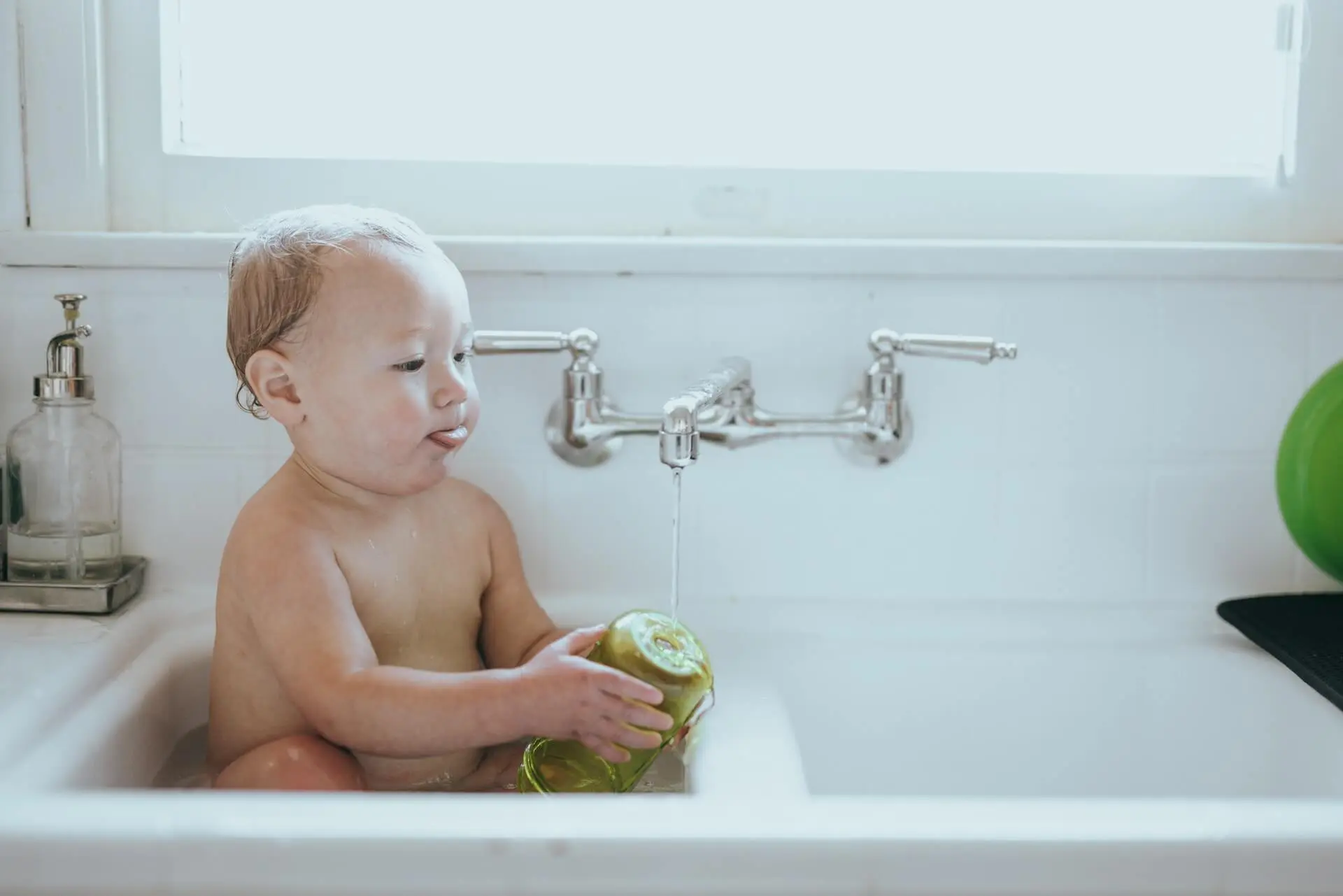No, Bathing a sleeping baby is not recommended. It poses a drowning risk and can disrupt sleep patterns. Always bathe when the baby is awake and attended.
Are you wondering if it’s possible to bathe your baby while they are sleeping? Bathing is an integral part of a baby’s hygiene routine, but it typically requires them to be awake.
The pros and downsides of washing a sleeping newborn will be covered in this article, along with alternatives that may be used to keep the child safe and comfortable. Understanding the best practices for bathing your baby will help you make informed decisions and provide the necessary care.

The Safety Consideration: Bathing a Sleeping Baby
Regarding the safety consideration of bathing a sleeping baby, parents often question whether it’s advisable. Do baths make babies sleepy? While the idea of a calming bath before bedtime might suggest so, utmost caution is required. Understanding the delicate balance between relaxation and potential risks is crucial.
Do baths put babies to sleep? A question some parents have. Warm baths can help you unwind, but safety always comes first. The issue of “Can I bathe my baby while sleeping?” must be addressed. Due to the risk of drowning, experts recommend against it. A well-organized routine for newborn bath time ensures their comfort and security.
Expert Insights on Bathing Newborns During Sleep
Expert insights into bathing newborns during their sleep highlight the delicate balance between hygiene and safety. Many parents wonder whether giving their babies a bath before bedtime helps induce sleepiness. While a warm bath can indeed promote relaxation, it’s essential to consider potential sleep disruptions.

However, it’s important to exercise caution when contemplating whether it’s safe to bathe a baby while they are already sleeping. Experts generally discourage this practice due to safety risks associated with handling a drowsy or sleeping baby in water.
Developing a bedtime routine that includes a soothing newborn bath can offer several benefits, including relaxation and bonding between the parent and child. Nonetheless, it’s crucial to strike a balance, prioritizing both the infant’s quality of sleep and overall well-being.
Timing and Temperatures
The timing and temperatures of nighttime baths play a crucial role, as per expert recommendations. Nighttime baths can be a helpful part of a bedtime routine, promoting relaxation and aiding in the baby’s overall comfort. Understanding the connection between warmth and drowsiness sheds light on why babies might sleep longer after a bath.
However, it’s important to approach the idea of bathing a baby while they are already asleep with caution. Experts advise that nighttime baths should be given about an hour before bedtime. This time frame allows the baby’s body temperature to regulate, contributing to a more restful sleep.
Safe Practices: Bathing Your Baby While They Slumber
Practicing safe hygiene and well-being when bathing a sleeping baby is of utmost importance. While considering whether baths make babies sleepy, it’s evident that a gentle bath can indeed have a calming and soothing effect. Understanding the reasons behind why babies tend to sleep longer after a bath highlights the positive impact of warm water in inducing relaxation.
However, when it comes to the question of whether you can bathe your baby while they are sleeping, it’s essential to exercise caution. Creating a peaceful and safe environment is crucial for a positive bathing experience in such cases.
Following expert recommendations, when bathing a newborn, it’s advisable to use a gentle touch, maintain a water temperature of around 100°F, and be both efficient and gentle during the process. By adhering to these safe practices, you can ensure that your sleeping child has a relaxing and secure bathing experience.
Understanding Infant Sleep Patterns and Bathing Schedules
Understanding infant sleep patterns and establishing a bathing schedule is crucial for a well-rounded routine. The question of whether baths assist babies in sleeping better is answered by the soothing effects of warm baths before bedtime, which contribute to relaxation and a sense of calm. The phenomenon of babies sleeping longer after a bath underscores this positive impact.

However, the idea of bathing a sleeping baby requires careful consideration. To reap the benefits optimally, it’s advisable to align newborn bath time with their natural sleep rhythms. Evening baths, followed by quiet and calming activities, can facilitate a smooth transition to sleep.
Experts emphasize the importance of maintaining consistency in both your baby’s sleep patterns and bathing schedules, ensuring a harmonious and peaceful bedtime routine.
Integrating Nighttime Baths into Baby’s Routine
To enhance your baby’s routine, it’s essential to consider the benefits of incorporating nighttime baths. The practice of giving your baby a warm bath before bedtime can significantly contribute to their relaxation.
However, it’s crucial to approach the idea of bathing your baby while they sleep with caution. Experts advise making baths a soothing precursor to sleep, using mild and hypoallergenic products. By establishing a consistent bedtime routine that includes newborn bath time, you signal to your baby that it’s time for sleep. Creating a peaceful environment with dimmed lights and tranquility can seamlessly integrate the bath into your baby’s evening routine, promoting relaxation and facilitating restful sleep.
Conclusion
In conclusion, bathing is essential to a baby’s hygiene routine and can contribute to their overall well-being. In contrast, it is generally recommended to avoid bathing a sleeping baby due to safety concerns; establishing a regular bathing routine when the baby is awake and alert is beneficial for their safety, comfort, and development. Always prioritize the baby’s safety and consult healthcare professionals for personalized guidance.


